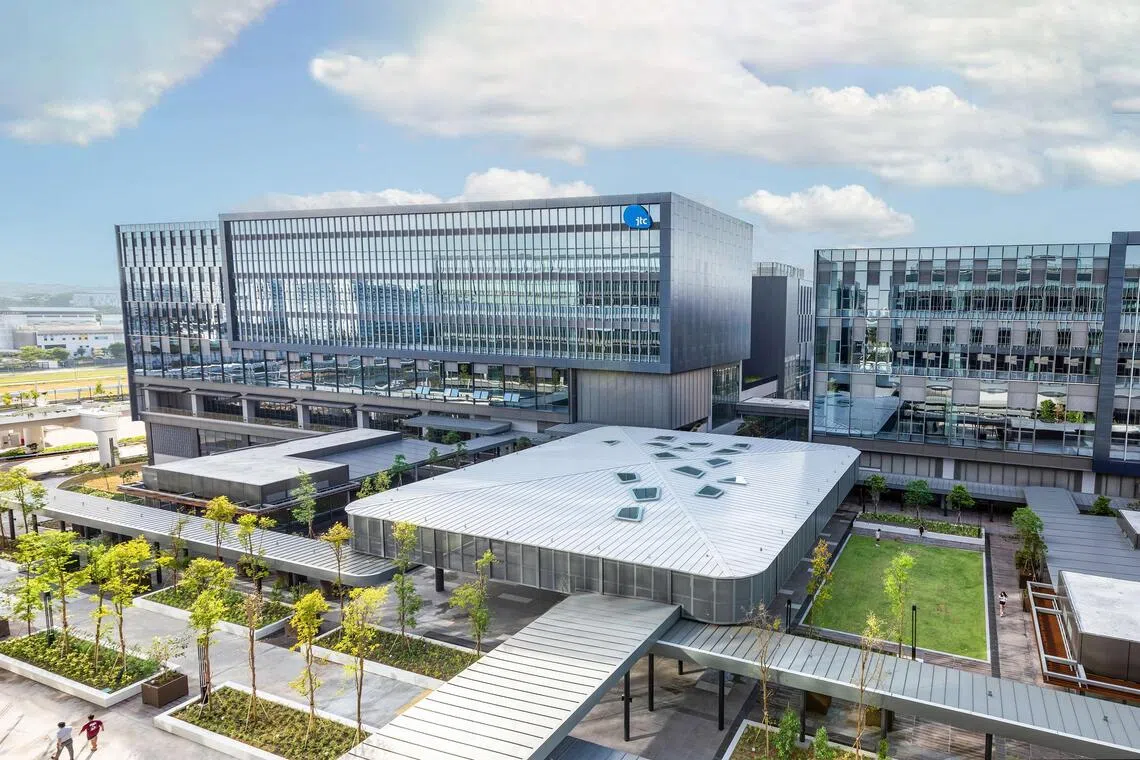JTC completes $570m Bulim Square, adding to Singapore’s advanced manufacturing ecosystem
Sign up now: Get ST's newsletters delivered to your inbox

Bulim Square adds more than 1.2 million sq ft of industrial space to the Jurong Innovation District to support Singapore's advanced manufacturing ecosystem.
PHOTO: JTC
- JTC Corporation has completed Bulim Square, a $570 million facility offering 1.2 million sq ft of factory space for advanced manufacturing.
- Located in Jurong Innovation District, Bulim Square facilitates collaboration between tech providers, researchers, and factories, accelerating innovation to market.
- Jeffrey Siow highlights advanced manufacturing's importance amid global challenges, noting Singapore's Economic Strategy Review to enhance competitiveness.
AI generated
SINGAPORE - Industrial landlord JTC Corporation has completed the $570 million Bulim Square, which adds over 1.2 million sq ft in factory space to Singapore’s advanced manufacturing ecosystem.
The facility of around 15 football fields in size has 23 tenants supporting sectors including semiconductors, aerospace, healthcare and robotics.
The development was announced by Acting Transport Minister and Senior Minister of State for Finance Jeffrey Siow on Oct 15.
Mr Siow, who spoke at the opening ceremony of the Industrial Transformation Asia-Pacific (Itap) 2025 event, said there is a need to create more spaces “where technology providers, research institutes, training providers and factories of the future can collaborate seamlessly across the innovation value chain”.
He added: “By co-locating research and development, prototyping, and production capabilities within one integrated environment, we can nurture innovation end to end, moving ideas more quickly from concept to market.”
The new facility is located in the 150ha Bulim precinct within the Jurong Innovation District (JID), a state-of-the-art campus where high-tech firms can collaborate.
It is connected to Singapore’s first underground District Logistics Network, which allows goods to be transported without heavy vehicles congesting the roads.
Separately, three research centres under A*Star – the Advanced Remanufacturing and Technology Centre, Singapore Institute of Manufacturing Technology and National Metrology Centre – have moved into JID’s CleanTech Park.
Research and development as well as prototyping facilities at the CleanTech Park and Nanyang Technological University (NTU) are expected to complement manufacturing activities in the surrounding area.
The locale was an attraction for local mobility robotics start-up Strutt, one of the early tenants of Bulim Square.
“Being in proximity to A*Star and NTU means we can collaborate with leading researchers in robotics and AI, while having access to manufacturing infrastructure and talent to implement breakthroughs,” said Strutt’s chief executive and founder Tony Hong.
“With renovations now complete, we’re working towards producing 1,000 units of mobility devices per month when we are operational at the end of the year,” he added.
Eleven of 23 tenants are now operational at Bulim Square. However, Japanese technology giants Fanuc and Konica Minolta, which previously announced that they would occupy space in the facility, did not carry out these plans due to changes in strategy, The Straits Times understands.
Mr Siow noted that advanced manufacturing is increasingly important for developed economies like Singapore, as artificial intelligence supercharges manufacturing processes and equipment.
He pointed to a recent observation by former US trade representative Michael Froman, who said that nearly half of all new Chinese manufacturing equipment sold in 2024 incorporated machine vision, predictive maintenance or autonomous control functions.
“Many key manufacturing sectors in Singapore, including semiconductors, healthcare, speciality chemicals and aerospace, are feeling the pressure to transform,” Mr Siow said.
“This is why Singapore launched an Economic Strategy Review just a few months ago, to prepare our industries and companies for a future that is fast-changing and may well be fundamentally different,” he noted.
Mr Siow co-chairs the committee on global competitiveness, which is looking at how the Republic can be competitive on the technological frontier and capture new growth opportunities.
It is one of five committees formed in August 2025, that will publish a final report with their recommendations by mid-2026
Mr Thomas Motak, deputy head of mission at the German Embassy in Singapore, said at the Itap advanced manufacturing event that collaboration between countries is becoming more important.
He said: “The challenges ahead of us, such as climate change, geopolitical tensions and cyber-security threats, are global in nature. No country can solve them alone.
“Let us remember that technology drives progress, but partnership makes it possible.”
The eighth edition of the Itap event, taking place from Oct 15 to 17, features 280 global brands from 24 countries and regions.



